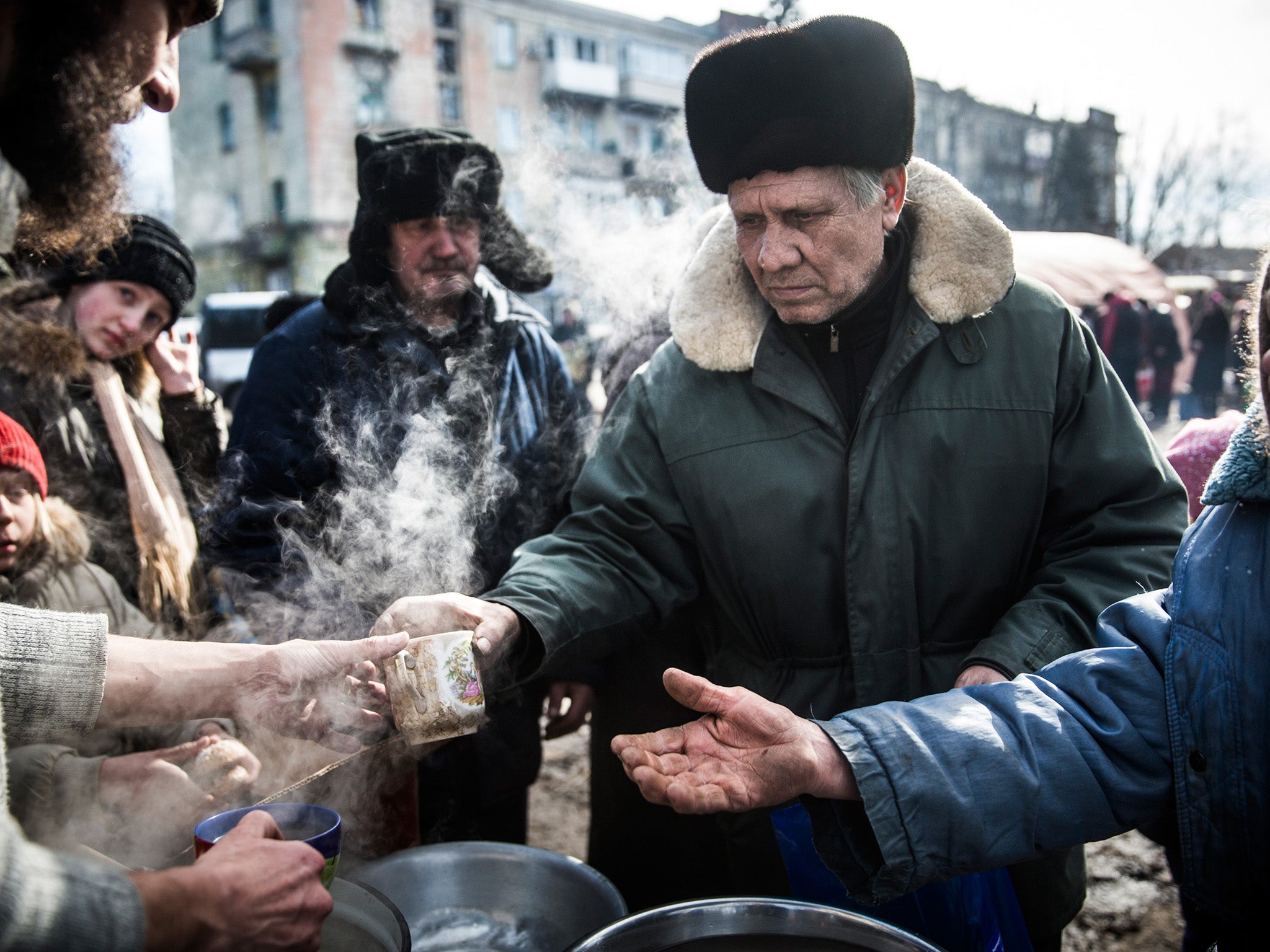Dogs ate bodies in the aftermath of the battle for Debaltseve in Ukraine
179 troops died in the battle for the strategic rail hub - along with an untold number of residents

Three weeks after one of the fiercest battles in the Ukrainian war, residents of the embattled city of Debaltseve had described how dogs began to eat the corpses of fallen soldiers and citizens as they struggled to bury the dead.
The city lies in ruins after becoming the focus of intense fighting before and after the start of a ceasefire deal that was agreed between Russia, Ukraine and Western powers in mid-February.
For pro-Russian separatists, Debaltseve is a key link between the cities of Donetsk and Luhansk, two rebel strongholds. Thus, in the month leading up the ceasefire, heavy gunfire and shelling became an everyday occurrence, as the separatists battled to take the city from pro-government forces.
Now, some three weeks after the rebels claimed victory, reports are emerging about the state of Debaltseve in the wake of the intense fighting, along with devastating stories about what it was like for residents during the four-week ordeal.
"So many corpses, dogs were gnawing those corpses," 62-year-old Nataliya Maslova told the Associated Press. "There was so little of it left you couldn't even bury them."
AP reporters who arrived in the city soon after it was captured by rebels said they saw uncovered bodies of Ukrainian solders lying on the roads and front gardens of people's homes.
Maslova added: "People were buried anywhere possible...in craters, on the streets, in the yards."
Maslova is one of six patients currently in the city's hospital. The good news is that the hospital reopened a week ago. The bad news is that it still has no water or central heating.
Maslova said her apartment block was hit by a shell and her windows were now shattered, the winter cold bringing on a case of bronchitis.
"We've seen a lot of fear," she said. "Everyone was gone. I was the only person left in our stairwell."

Huge blocks of flats lie deserted in the city and hundreds of people queue daily at one of the remaining grocery stores where rebels had out one loaf of bread per person.
Marina Trifonova, a nurse in the hospital who remained in Debaltseve during the fighting, told the AP, "Many have left. Some are returning, some aren't. I belong here."
Indeed, Debaltseve had a pre-war population of 25,000. Reports now suggest that number has shrunk to between 5,000 and 8,000.
The AP reported that rebel emergency workers have been helping local residents with blankets, water and charging mobile phones since the city was captured on February 18.
The newly self-appointed mayor, Alexander Afendikov, told the AP that the Russian separatists were trying to return the city to normal life as quickly as possible, with priority given to rebuilding hospitals, schools and large apartment blocks.
At least 179 Ukrainian troops were killed in the battle for Debaltseve, as well as an untold number of civilians.
On Wednesday, NATO said that Russia was still arming and training rebel forces in eastern Ukraine, with the Secretary General Jens Stoltenberg calling on Vladimir Putin to respect last month's ceasefire by withdrawing all forces from the conflict.
Additional reporting by the AP
Join our commenting forum
Join thought-provoking conversations, follow other Independent readers and see their replies
Comments